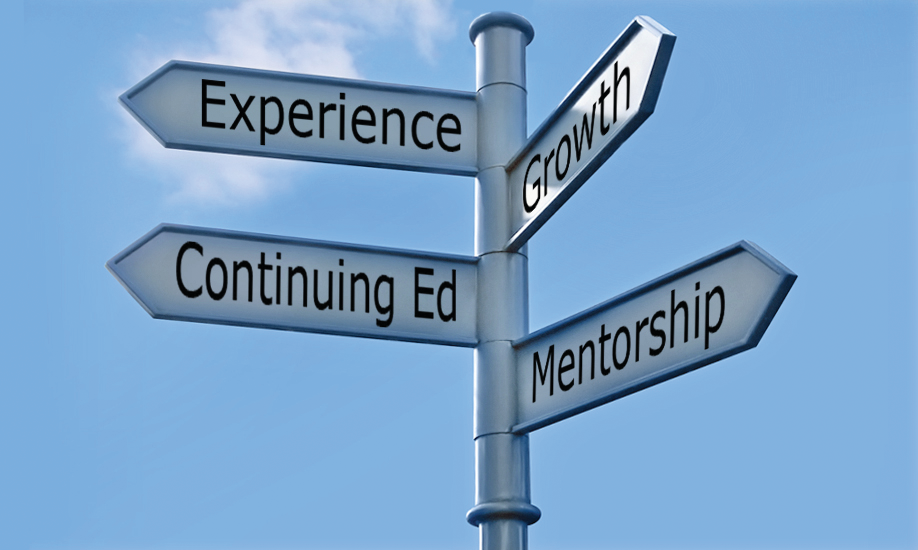Recently I talked to the leaders of a mid-size firm about creating a framework to improve their effectiveness, increase their capacity and take key steps toward transforming the focus of their firm from compliance to advisory. As we concluded the conversation, the managing partner asked me what I felt made the difference between firms that were successful and those that struggled to make the change. It’s a great question.
As I paused to consider my answer, I thought about how critical it is to have buy-in from the top. If leadership is not aligned and committed, initiatives fail. In addition, a growth mindset (as opposed to a fixed mindset) is required to help the firm push beyond where they are and out of their comfort zone. (If you want to learn more about the growth mindset, read Carol Dweck’s book Mindset: The New Psychology of Success or watch her TED Talk.) But the most important attribute we see in firms that have been successful in change initiatives is discipline.
Transformation happens one step at a time. One decision at a time. Repeated steps in the right direction lead to new destinations instead of down the same old paths. But we must keep in mind that the road to change or transformation is uphill.
In his book No Limits: Blow the CAP Off Your Capacity, author John Maxwell says, “Everything worthwhile in life — everything you want, everything you desire to achieve, everything you want to receive — is uphill. The problem is that most of us have uphill dreams but downhill habits.” Discipline is the game changer.
Here are the five areas where discipline really makes a difference:
Make a plan and document it
Benjamin Franklin famously said, “If you fail to plan, you are planning to fail.” Many firms say they have a plan but when we ask to see it, it is not written down or it is outdated.
It takes discipline to make, document and share a strategic plan and discipline to review it frequently and refresh it annually, especially while juggling competing priorities ranging from managing a book of business to managing talent. But resources (time and money) are limited. So it’s crucial to identify and document your firm’s strategic objectives and measurements of success. Only then can you hold yourself and your team accountable.
Have tough conversations
Holding people accountable is not always fun. But it IS necessary. We can’t avoid having conversations to correct behavior that is in opposition to the firm vision. We must have the courage and skillset to recognize that these conflicts can be a strategic asset and handle them effectively.
Firms have the most success in this when they have some training. We’ve been providing training around communication and conflict more frequently as firms realize that the ability to navigate conflict productively helps them move faster.
Move forward even in the face of obstacles
There will be problems. Don’t let them catch you by surprise; plan for them and have proactive strategies to overcome them. You can’t just revert to old habits as soon as the new direction gets challenging. Give yourself and others time to adjust to the learning curve. It takes time to change, and an obstacle is not a sign of failure. You must have the discipline to persevere.
Continual learning
The pace of change is accelerating faster and faster. You need to be aware of what is going on and then adjust accordingly. The profession today calls for proactive rather than reactive learning. The most successful firms recognize that training is an excellent investment with significant financial and cultural returns. So seek outside perspectives, join a peer network and encourage a learning culture firm-wide.
Don’t let success make you complacent
I talked to a partner at a firm about their tax season. He shared a story about how he walked into the break room after busy season last year and heard the staff talking about how this was the best busy season ever. He corrected them: This was the best busy season YET, not the best ever. There is always more they can do to be even better. His mindset is that the best is always ahead, and continuous improvement is the way to keep striving for it.
Knowing what needs to be done is often the simplest part of transformation. The real work comes from putting that knowledge to work. To reap the rewards, we sometimes have to endure the tedium of repeated behaviors, even if we’re not seeing immediate results. It’s that ability to continue taking steps in the right direction and avoid the temptation to return to the comfortable, downhill route that sets successful firms apart.
Thanks for reading CPA Practice Advisor!
Subscribe Already registered? Log In
Need more information? Read the FAQs





